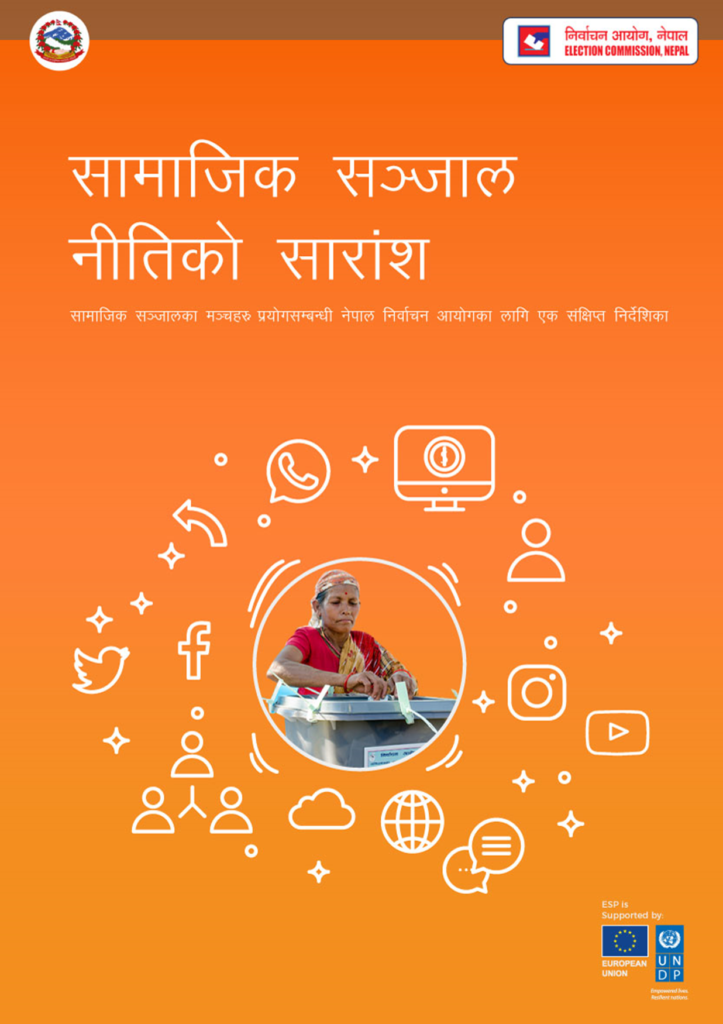Ahead of the by-elections, the Election Commission, Nepal (ECN) amplified its digital presence through its Facebook page as well as its website. In that sense, it used the social media and the website as platforms to reach out to current and future voters to keep them engaged with, and informed and updated on the activities of the Commission.
The Electoral Support Project (ESP) supported the ECN in this process. ESP hired a social media consultant to facilitate this task. ESP drafted a social media engagement strategy for the Commission that analysed the kind of social media most popular in Nepal, how social media can be used as a professional tool to enhance outreach, the potential challenges and the ways to address them, as well as a section on social media engagement specifically for the by-elections.
The social media engagement on the by-elections was guided by this document. Under the leadership of ECN, a dedicated task force with ESP and International Foundation for Electoral Systems (IFES) representatives was formed to coordinate content for the ECN Facebook page. ECN posted information and infographics, press releases, photos and videos, slogans on the by-elections and voter education.
The creative content and the use of social media to reach out to the public was a novelty of this effort. ECN also payed special attention to issues of inclusion, ensuring that a wide array of posts were made: For example, a special sign language interpretation of a video on valid and invalid vote that was posted on Facebook was very well-received by the audience.
In addition to supporting the Commission to strengthen its digital presence, ESP also worked with Local Interventions Group, a civic innovation company, to understand how the digital space was used by the public during the by-elections. Their findings complement the ESP social media engagement analysis, and show that among around 400 personal posts analysed, the highest number were used for campaigning, and that majority of the posts were largely factual and positive. The analysis also confirmed that social media activity around elections is largely dominated by men.
In context of the by-elections that took place in Nepal on 30 November 2019, the social media campaign was launched from 10 November to 2 December 2019. In the 23-day long campaign period, the total page followers of the Commission rose from 33,098 to 43,821 followers, an increment of 32.39%.
The Electoral Support Project- Phase II (ESP) is a technical assistance initiative which focuses on a long-term institutional and professional capacity development of the Election Commission Nepal (ECN) to conduct credible, inclusive and transparent elections. The objectives of the project are 1) to strengthen the capacity of the ECN to function as an independent and credible institution, 2) to allow the conduct of the election cycle in an effective, sustainable, and credible manner, and 3) to increase democratic participation, particularly for under-represented and disadvantaged segments of the Nepali society. In 2019, ESP was funded by the EU and UNDP.

